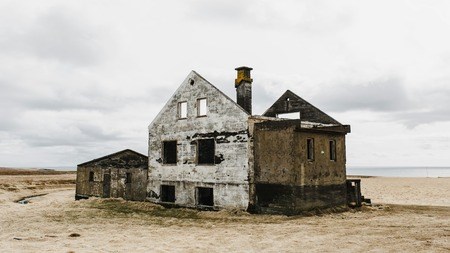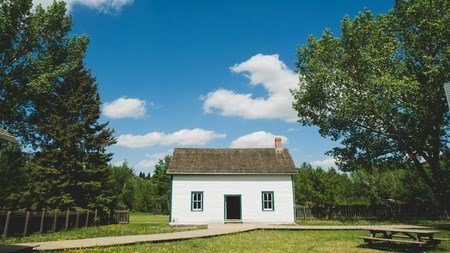Ria Furriel, Partner Community Schemes King Price Insurance, tells us what we should be looking out for when buying an old house, but first we need to clarify what is considered an ‘old’ property in the South African context.
“Homes built before 1990 are considered older homes,” she says, “and homes older than 60 years require a permit from the SA Heritage Resource Agency.” This organisation is responsible for the protection of South Africa’s cultural heritage, by identifying, assessing, managing, protecting and promoting heritage resources in South Africa.
Q1: Should owners know when their home was built and when would this type of information be needed?
Yes, it’s important for owners to know when their home was built because the age of a property can impact legal requirements, insurance, and future maintenance costs. For example, homes older than 60 years may be protected under heritage laws and require permits for alterations. This information is particularly important during the house hunting process, before signing the Offer to Purchase (OTP), as it helps buyers assess potential risks, renovation challenges, and long-term expenses.
Newer homes typically have fewer maintenance concerns and are more compatible with modern upgrades. In contrast, older homes may require specialised contractors, original materials, and official approvals for modifications.
Q2: How can owners find out the age of their home?
From their local municipality, which stores archives of the original building plans. The signing of any new building plans will also confirm the age of the building.
Q3: What key condition issues should buyers check?
Structural integrity.
Roof constructions such as sagging roofs and roof leaks. For this you will likely need a qualified person to do this type of inspection.
Plumbing, especially leaking pipes, and electrical systems.
Signs of pest infestations.
Quality of finishings.
Our advice, given that generally most home buyers do not have the necessary expertise, is to make use of a qualified inspector/engineer to do a thorough whole property inspection. This may be costly but the money spent on these inspections is worth it.
Q4: How does the age of a home impact on how the home is insured?
Older homes are considered a higher risk due to outdated plumbing and electrical repairs, for example. Repairing/replacing these installations is expensive.
Roofs on these older buildings also bring challenges. For example, the tiles on a roof structure are probably no longer available or not compatible to current replacements.
Newer homes have modern construction features and sourcing compatible materials is much easier and therefore not a high risk for insurers.
Q5: Do insurers require home inspections, or is it the homeowner’s responsibility?
Insurers may require an inspection/engineer’s report or may inspect themselves before they are prepared to quote. However, normally it falls within the homeowners’ ambit, as they need to declare all material facts to the insurer that may impact the insurer’s decision.
Q6: What are old homes’ generic red flags?
When assessing an older property, buyers should be aware of several common issues that may indicate structural or maintenance concerns:
1. Foundation and structural issues
- Signs of rising damp or moisture in lower walls or basements
- Poor drainage or water pooling around the foundation
- Uneven floors or visible cracks in interior and exterior walls
2. Roofing
- Sagging rooflines or signs of leaks
- Roofing materials that may no longer meet current building standards or are difficult to replace
3. Plumbing and electrical systems
- Outdated or corroded plumbing that may not comply with SANS standards
- Drainage issues, including frequent back-ups
- Old or non-compliant electrical wiring, which may be a fire hazard or fail to meet modern safety regulations (SANS 10142)
4. Pest infestations
- Termite or wood borer damage, especially in wooden roof trusses or flooring
- Rodent activity in attics or ceilings
5. General maintenance history
- Evidence of poor-quality or cosmetic-only renovations
- Use of outdated or inappropriate building materials
- Lack of permits or documentation for previous alterations
Q7: If there are issues, should the buyer submit a lower offer, or ask for those to be corrected before buying?
It will depend on whether the property is your ultimate dream home, or has some value for your investment.
i) The home buyer must ensure that they have accurate costings and have sourced qualified service providers who are committed to undertake repairs.
ii) Depending on the severity of issues, the homeowner can be restricted in terms of the types of repairs to be done, and this should be clarified before the OTP is signed. If a high risk, it is better to submit all costs and negotiate the lower price. You do not want a plumber to fix a sagging roof but rather someone who has that specific expertise.
At King Price, our motto is – “The right tool for the right job” – and this applies equally to property purchases and how they are repaired.
Q8: What other steps do you recommend on older properties?
Older homes may be protected by law and renovating those can have serious implications. This is why all buildings, older than 60 years, are generally protected under Section 34 of the National Heritage Resources Act. Also, before you do any additions or alterations to these homes, you must be aware that there are quite a number of hoops to jump through, for approval.
Make sure you are up for this challenge and have considered all the facts, including listing all the pros and cons. Only then can you weigh up whether you have the financial resources and the energy to progress.
Q9: If an older home has been majorly renovated, does this mean that the home is considered newer or does the original build date still define it as an 'older' home?
There is a misperception about what renovation of a building means. “Renovation” is the act or process of improving an existing structure without significantly changing that structure.
In South Africa you legally need approved building plans from your local authority before starting a renovation or improvement. Renovating an old building does not change the original build date.
Q10: Your best advice?
Do not take shortcuts nor make use of inferior products when you maintain your building and always ensure you use the “Right tool for the right job!”. Take care of your investment by ongoing maintenance and repair.





